6 years, almost to the day, is how long it took for US indie Tiger Style Games to release its sequel to Spider: The Secret of Bryce Manor.
But while that game was the critical darling of 2009, back when the App Store environment was more supportive of premium pricing, 2015's sequel Rite of the Shrouded Moon was released into a much changed world.
For Rite of the Shrouded Moon (priced at $5), the critical acclaim that propelled its predecessor to success would not necessarily guarantee any traction on the now F2P-dominated storefront.
The market for premium games on mobile has shrunk, making the potential audience for a thoughtful, esoteric puzzler like Spider smaller than ever - regardless of its obvious quality, which culminated in an average review score of 91.
Labour of love
It makes for an interesting case study, then - an indie studio staying true to itself and maintaining largely the same methods in the face of such an enormous shift in the world around it.
6 years is an incredibly long time in mobile, and it's rare that we're given such a clear opportunity to reflect upon this.
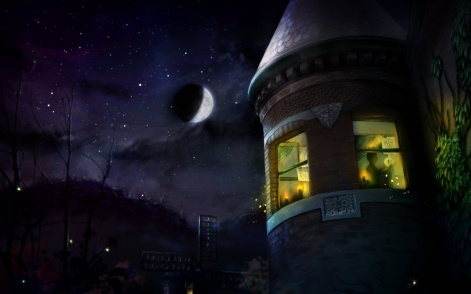
Speaking to Randy Smith, Creative Director at Tiger Style, the motivation behind a return to Spider so many years on quickly becomes clear. For Smith, this is a deeply personal project.
“I truly love working in the Spider universe, because it combines so many of my favourite things,” he says.
“The fictional blend of 19th Century life, gorgeous domestic architecture, and the vivid natural world is heavily based on Vermont, the history-rich and absurdly pastoral state in New England where I grew up.”
I love crafting dark domestic dramas and sprawling mysteries.Randy Smith
Indeed, a large part of Spider's appeal is in the eerie and mysterious edge that runs through it, with a hauntingly evocative ambient storyline that unfolds throughout the game's abandoned yet lived-in environments.
Simply put, it's more human than a game ostensibly about an arachnid has any right to be. And again, this is down to Smith's unique tastes as a creator.
“I love crafting dark domestic dramas and sprawling mysteries,” he explains.
“And compared to the more traditional narrative of [previous game] Waking Mars, I feel back at home working with Spider’s unique storytelling technique, which is nonlinear and purely environmental, using a minimum of words and cinematics.”
Standing alone
The result is a game whose only real peer is its own predecessor, and that's exactly what Smith says he was aiming for: “The idea of starting with an existing game or genre and thinking, 'Okay, so what’s our take on this?' is a really depressing one to me.”
“Instead I like to think, 'What’s a game that’s never been made?'”
With this attitude being a core tenet of the studio's philosophy, it's perhaps surprising that Tiger Style was interested in revisiting Spider in the first place. However, Smith and his team were keen to make Shrouded Moon more than your average sequel.
“The Shrouded Moon development experience was a big scaling up compared to Bryce Manor and Waking Mars, with a larger production, more collaborators, more platforms, the Unity engine, larger scope, more polish, and more features,” he reflects.
And while Smith tells us that Tiger Style “operates more like a production company which waxes and wanes in size depending on what work there is to be done at the time,” Shrouded Moon was the Tiger Style game with the biggest dev team.
There were “about 20 contributors total and about 6 of those working nearly full time for long stretches, compared to Waking Mars and Bryce Manor being closer to 3 full time contributors,” Smith recalls.
We’ve not been very successful at figuring out when any of our games are likely to ship.Randy Smith
However, despite this increase in hands on deck, the game still managed to miss its projected 2014 release - an issue symptomatic of Tiger Style's focus on creation over iteration.
Indeed, it ended up being less a sequel and more a complete overhaul, according to Tiger Style co-owner David Kalina: “Making a sequel can sometimes lead you into a trap where you feel the need to outdo the previous game in every possible dimension.”
Time up
All this resulted in “a really large, fully featured, highly polished game which took a little over two calendar years from start to finish,” says Smith.
“Honestly, we’ve not been very successful at figuring out when any of our games are likely to ship, and this was a bigger production with more moving parts,” he admits.
“We probably started publicizing our 'wishful thinking' schedule for Shrouded Moon a little too early.”
However, regardless of the fact that its philosophical approach to game development has barely changed in 6 years, the Tiger Style team was more than aware of the uphill struggle it faced in releasing a game like Spider in 2015.
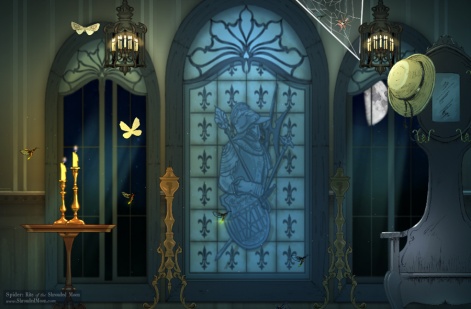
“From the very beginning of the App Store in 2008, before Tiger Style even had a name, I knew the wild west frontier wouldn’t last forever,” says Smith.
“[I knew] the biggest companies would come along and colonize the market, establishing the rules about how games make money and locking the rest of us out of the majority of the revenue.”]
Sales have been very disappointing and even alarming.Randy Smith
He refers to the major onset of free-to-play as “the tipping point” for the App Store's push towards big money, a weighted market in which companies like Tiger Style have no hope of competing.
“While I was participating in this interview, Clash of Clans probably made more money than I’ll make it my entire life,” he adds.
Getting squeezed
And it's not just free-to-play juggernauts that Smith feels are putting the squeeze on indies, but also big-name players from the console space turning up on mobile to make premium yet more competitive.
He refers to a recent wave of “super high-profile IP like Lara Croft, Hitman, and Fallout making indie-esque mobile games and dominating with their marketing muscle.”
Add in the sheer number of smaller studios competing in the same market, and Smith concludes there are simply “not enough scraps to go around.”
For Smith, the end result is a market with none of the guaranteed returns it once had. A market in which certain types of games are simply unsustainable, even.
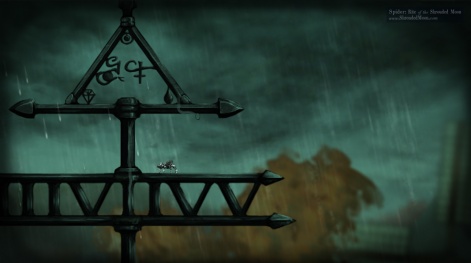
It's uncompromising, and blind in the face of quality and critical acclaim.
“Tiger Style makes very well regarded and highly rated games, plus we have strong partner support, and in the past that’s always kept us at some baseline minimum income,” says Smith. “But that no longer seems to be the case.”
He adds that for a game like Shrouded Moon, 2 years in the making and with relatively high costs, there needs to be a guarantee that “it’ll at least keep the team fed.”
“It doesn’t look to me like that’s a guarantee anymore.”
Quality =/= success
And this isn't just Shrouded Moon, either: Smith posits that “we’re just at the start of a wave of painful consolidation and reorganization in the market which is likely to eliminate certain types of games from plausibility.”
It's tough to see Smith talk with such passion about Shrouded Moon's development in one breath, before sharing such bleak projections for the game and others like it in the next.
And it's difficult to reconcile that one of the year's best mobile games, a crafted labour of love, may not have found the audience it deserves.
It leads to an obvious question: is Smith's pessimism informed by the game's performance so far? Unfortunately, it seems so.
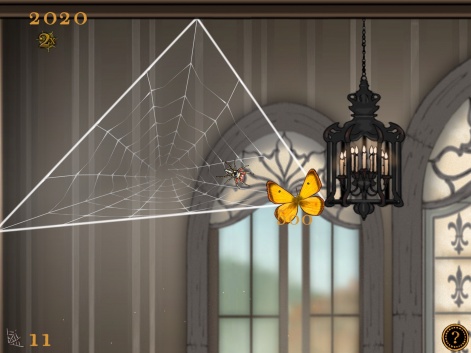
“The amount of attention and praise we’ve seen from players, critics, and press for Shrouded Moon is even more than our other games (both of which won Game of the Year awards, so that’s saying something), but the sales have been very disappointing and even alarming,” he reveals.
There's not just personal pressure on the core Tiger Style team at this stage, but more of a responsibility than ever before.
Smith refers back to the larger team of collaborators on the game, and talks of his desire for them to receive royalty payments befitting of their time investment: “Currently it doesn’t look like that has a chance of happening.”
Embracing limitation
Of course, with Shrouded Moon only launching in August, there's plenty of time for things to pick up.
“The current trajectory of sales is different than that of our prior games, so there is still some hope that our fortunes will reverse, but it’s definitely a harsh wake up call.”
Kalina lays out the reality of Tiger Style's current situation in no uncertain terms: “At the moment, our expectation is about 1/3 the return of the original Spider for 5 times the man-hours,” he says.
“This is pretty obviously bad for our company’s immediate future and is well under even our most conservative projections. It’s unlikely we’ll be able to make another game of this scope anytime soon.”
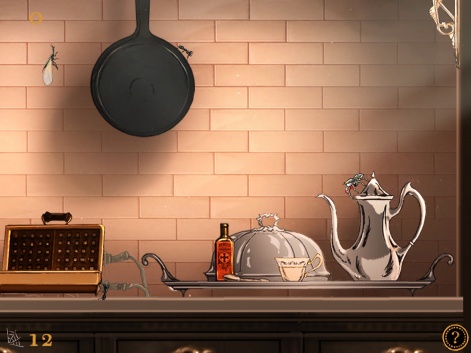
However, Tiger Style's passionate and design-focused approach shining through, Kalina manages to look on the bright side.
“Tight constraints can often be a crucible for creativity, and I see it as an exciting new challenge to re-examine our beliefs and creative ambitions to figure out how to make an impact with far fewer dollars to spend.”
“Or we’ll go get high-paying, soul-sucking jobs with EvilCorp! Either way!” he jokes.
It's hard to imagine either Smith or Kalina ever taking such drastic action, but if you want to keep them where they belong - in a small indie at the forefront of intriguing mobile-first game design - then you should consider buying Spider: Rite of the Shrouded Moon on the App Store or Google Play priced $4.99.





















